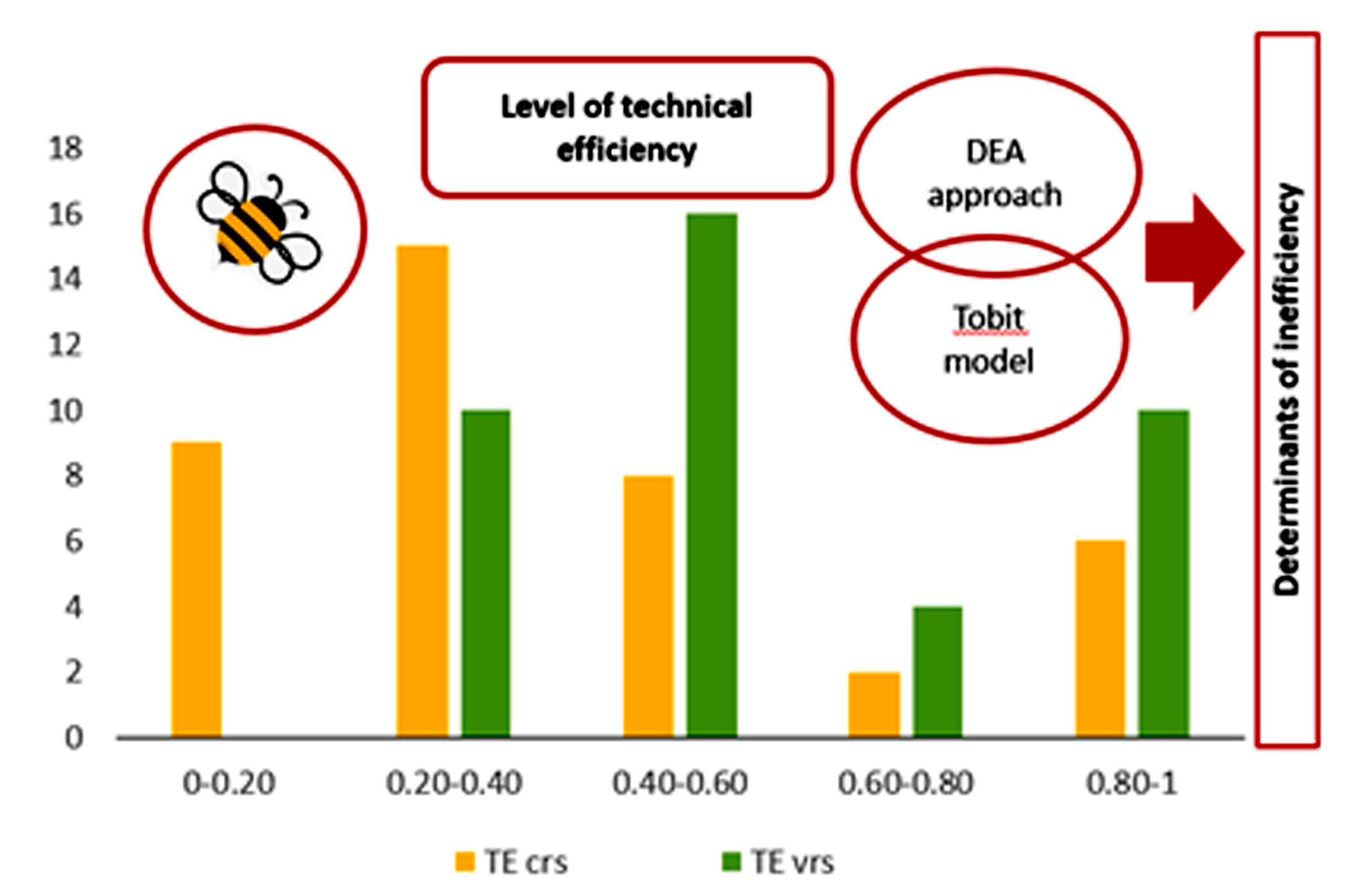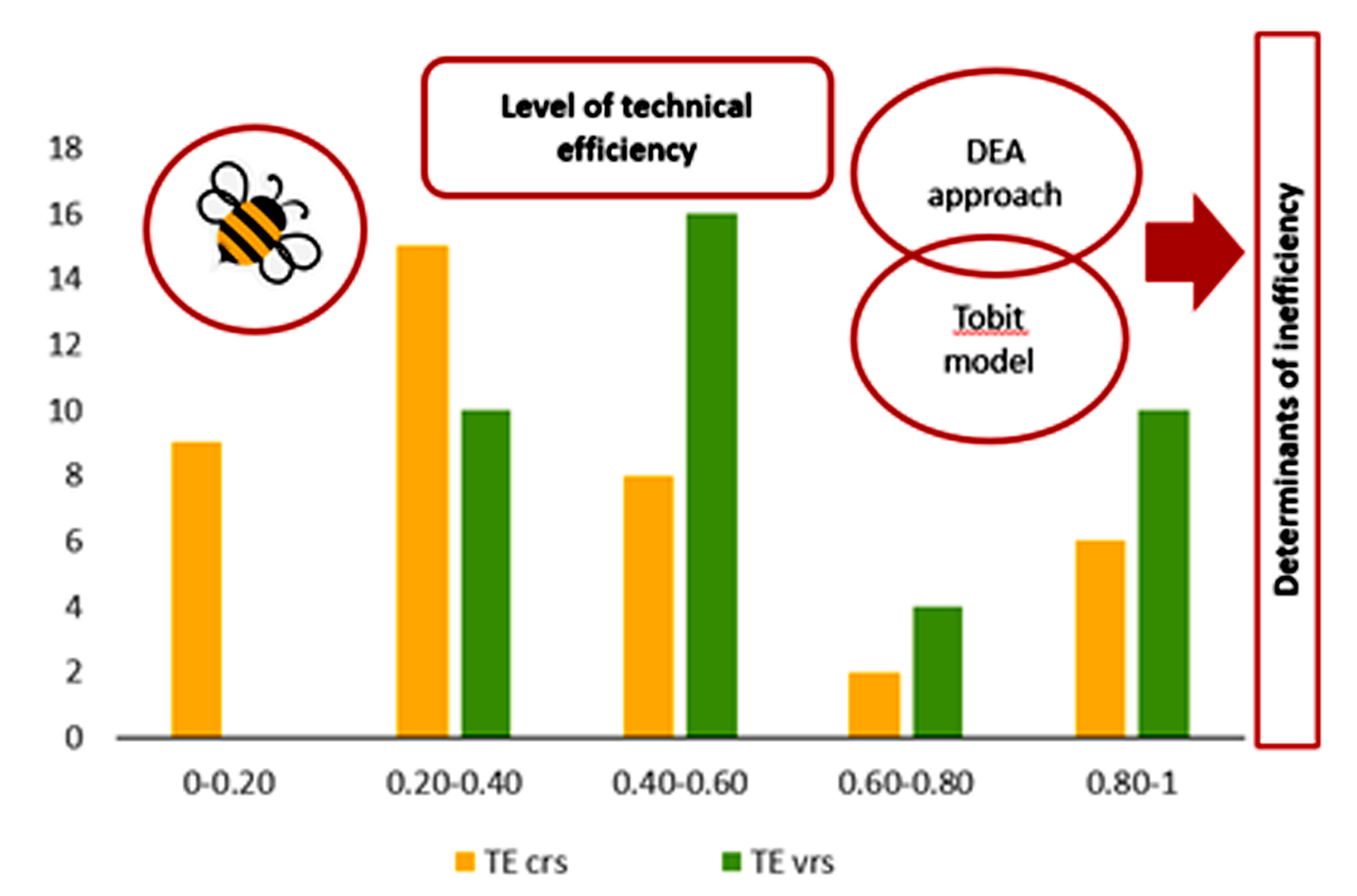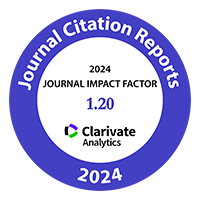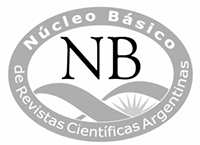Key factors affecting the technical efficiency of bee farms in the province of La Pampa (Argentina): A two-stage DEA approach
DOI:
https://doi.org/10.48162/rev.39.015Palabras clave:
sostenibilidad, manejo de la granja apícola, toma de decisiones, DEA, modelo TobitResumen

This paper analyzes how decision-making, management capacity and technology adoption by beekeepers, affect the technical efficiency (TE) of Argentinean beekeeping through the case study of the province of La Pampa (Argentina). The assessment of TE is currently receiving ever-growing attention as an indicator of sustainability and usage of sufficient natural resources in beekeeping activities. This study aimed to identify the key factors affecting the technical efficiency of bee farms in the province of La Pampa. The study included a sample of 40 bee farms and estimated their TE score through an input-oriented Data Envelopment Analysis (DEA) model. In a second stage, Tobit regression was determined to evaluate the technical inefficiency determinants. This paper found that most beekeeping production units have low TE levels. Only 25 % of bee farms produce either at or close to the frontier. The Tobit model revealed that variables such as marital status, educational level, primary family income, source information usage, planning and health area, affect positively on pure technical efficiency. These results are considered to be of great interest for structured beekeeping systems on small-scale and family farms, as well as for political decision-makers, regarding a public program in apiculture.
Highlights:
- Argentina is the leading country in America, exporting honey worldwide.
- DEA approach and Tobit model based on a two-stage analysis is a useful tool when evaluating livestock production systems.
- Bee farmers in La Pampa (Argentina) are operating below the production frontier, which indicates there is still scope for improvement.
- Variables such as marital status, educational level, primary family income, source information usage, planning and health area, affect positively on technical efficiency.
- Beekeepers should be encouraged by the government to improve their efficiency through training programs to ease decision-making and management, therefore enhancing productivity.
Descargas

Descargas
Publicado
Cómo citar
Número
Sección
Licencia

Esta obra está bajo una licencia internacional Creative Commons Reconocimiento-NoComercial-CompartirIgual 3.0.
Aquellos autores/as que tengan publicaciones con esta revista, aceptan las Políticas Editoriales.










.jpg)




